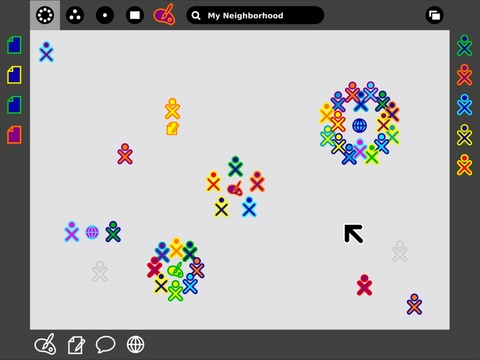I follow Paul Dourish‘s work because I find that his philosophy of science, combined with his corporate research background, puts him close to the way I usually think. In “Reimagining the City: The Cultural Dimensions of Urban Computing“, he and Amanda Williams say …
…. we argue for place as process rather than object or container. [p. 42]
The article is actually centered on mobile information technologies (e.g. the Internet on your phone, while you’re in a city), but the idea frames the idea of place in a different way for me.
Firstly, treating cities as generic (i.e. urban is not rural) doesn’t reflect that each city has its own merits, demerits and “feeling”.
… we view cities as culturally and historically specific, rather than homogenous, and are attempting to open up new perspectives on urban computing by exploring their cultural dimensions. [p. 38]
This rapidly send us into what is meant by “cultural”.
The word “cultural” can be interpreted in two different ways. The taxonomic view recognizes that cities in Britain are different from those in the US, Australia, or Asia. Though it allows for categorization and classification, the taxonomic view of culture obscures a deeper meaning.
We are more concerned with the generative or interpretive notion of culture, which recognizes that cities reflect and reproduce cultural values, and that encounters with cities represent opportunities for cultural work. [p. 38, editorial paragraphing added]
The way I read this, cities not only shape urbanites (the people in the cities) … but urbanites also shape the cities.… Read more (in a new tab)



